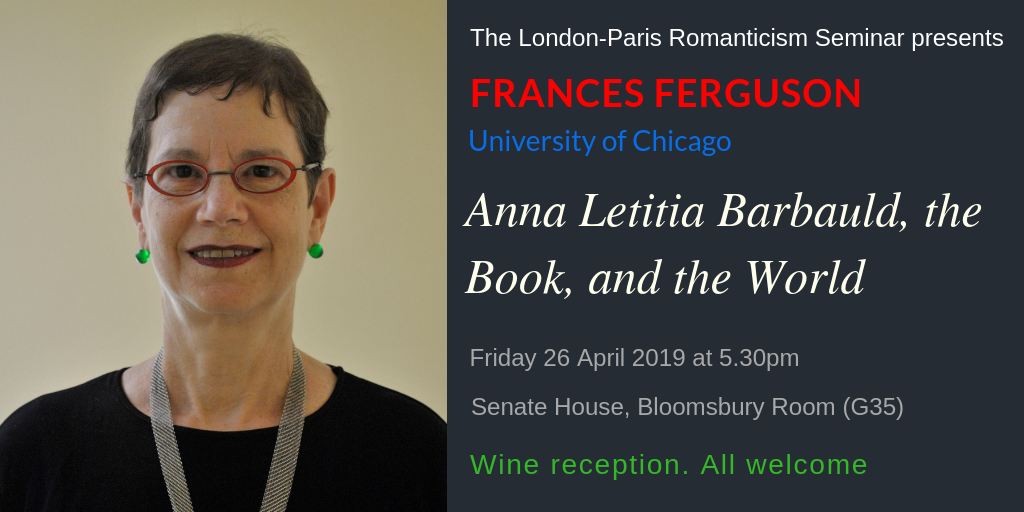
The next meeting of the London-Paris Romanticism Seminar will take place on Friday 26 April in the Bloomsbury Room (G35, ground floor) at Senate House, University of London, starting at 5.30. As our distinguished guest speaker, we are delighted to welcome Professor Frances Ferguson of the University of Chicago, who will present a paper entitled Anna Letitia Barbauld, the Book, and the World. This will be followed by a discussion and wine reception. The event is free and open to everyone, including postgraduates and members of the public. No booking is required.
Frances Ferguson taught at the University of California-Berkeley and Johns Hopkins University before joining the English Department at the University of Chicago as Ann L. and Lawrence B. Buttenwieser Professor. Her publications include Wordsworth: Language as Counter-spirit (1977); Solitude and the Sublime: The Aesthetics of Individuation (1992); and Pornography, The Theory: What Utilitarianism Did To Action (2005); and articles on various topics in eighteenth century and Romantic studies. The journal Critical Inquiry has most recently—in late March of 2019—published her essay “Not Kant, but Bentham: On Taste.”
Regarding the topic of her talk, Frances writes:
“Anna Letitia Barbauld’s writings for children—the Lessons for Children that she directed to children between the ages of two and four and the Hymns in Prose for Children that followed them—have long been recognized as distinctive. They did not focus on teaching the building blocks of words: letters and syllables. Neither did they address children with moral statements, connected stories, or rhymes and ditties. As Barbauld put it, ‘A grave remark, or a connected story, however simple, is above [a young child’s] capacity; and nonsense is always below it.’ Barbauld published her books for children without illustrations, and they rely on ongoing conversational naming in which her speakers point to things—animals, objects, other people—in the world. My paper aims to characterize Barbauld’s reasons for writing as she did, and her understanding of the nature of publication.”